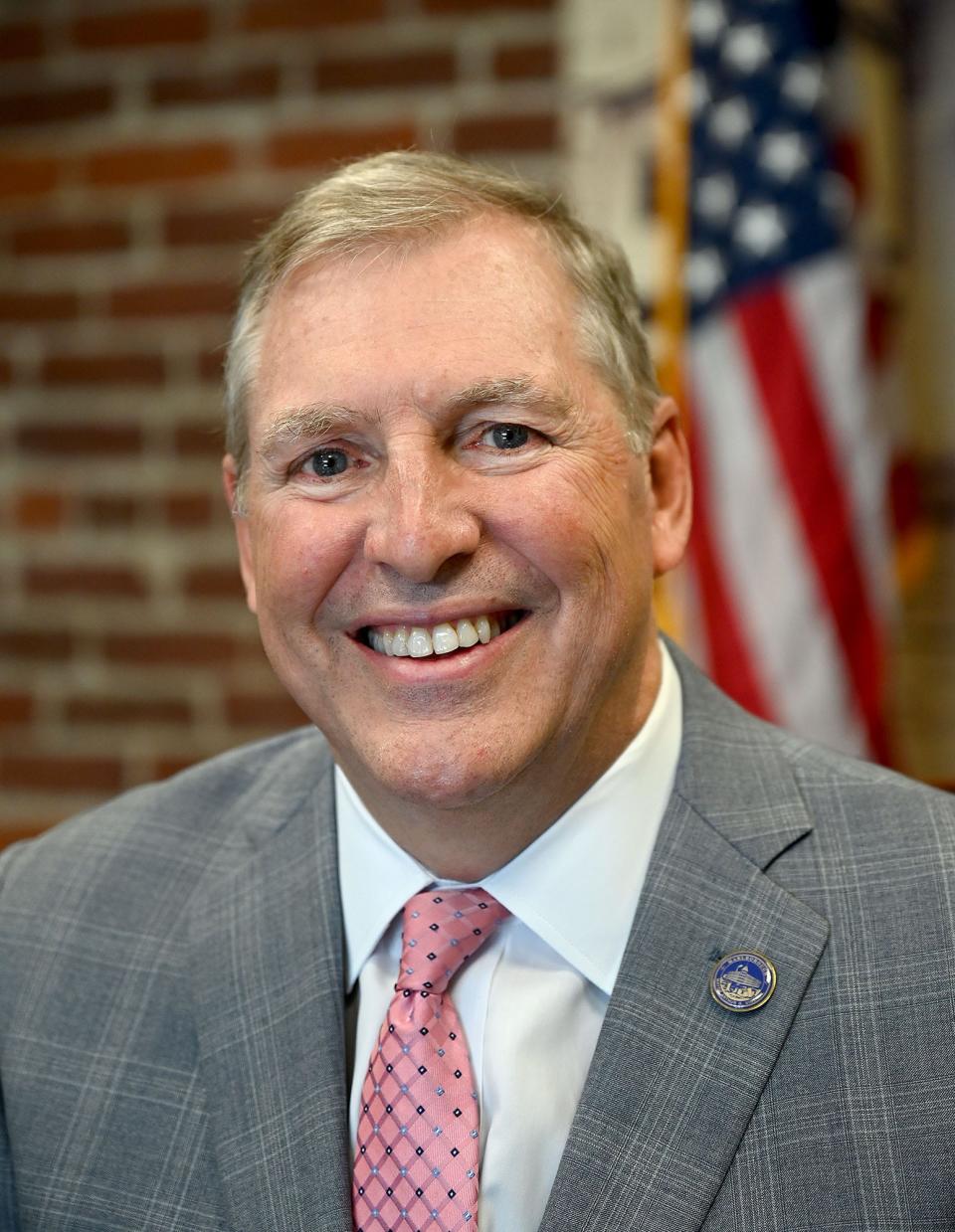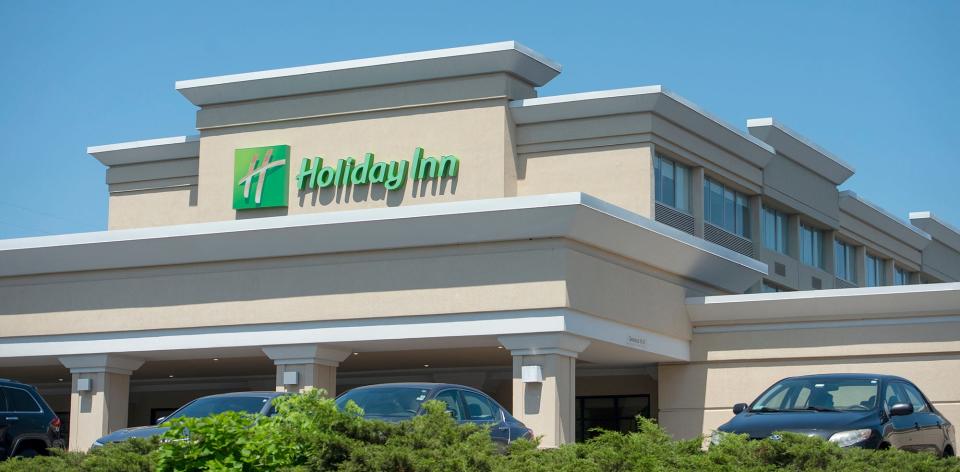Surge in homeless families has Marlborough officials worried about impact on schools
- Oops!Something went wrong.Please try again later.
MARLBOROUGH — An increase in the number of Haitian migrants staying in Marlborough has led to concerns about the city’s capacity to handle the surge of new families, particularly those with school-aged children.
Mayor Arthur Vigeant was told last week that the city will soon have 30 new families moving into the Holiday Inn on Lakeview Avenue, bringing the total number of migrant families there to 63, with plans for all 170 rooms to likely be filled similarly.
“I just had a conversation with the lieutenant governor (Kim Driscoll), they have told us that 30 more families will be moving into the Holiday Inn today,” Vigeant said in a phone interview on Wednesday. “They said that we can expect every room at the hotel to be filled. That is on top of about two-dozen additional homeless families that are living at the Extended Stay (America) hotel.”

'Pretty different from criminal court': Massachusetts lawyers explain how immigration court works
Why Haitian refugees are coming to the US
More civil unrest in Haiti has increased the number of refugees fleeing violence in the Caribbean nation. In response, the federal government has sought shelter for those arriving. Massachusetts is the only state that has so-called right-to-shelter laws, which means it's obligated to provide shelter for families with at least one child under age 21.
State Sen. Jamie Eldridge, D-Marlborough, said Marlborough has historically been supportive of immigrants, as well as other lower-income residents of Massachusetts.
"Marlborough has always been a city of immigrants, a very welcoming city for those that are less well off," he said. "This has happened before, it happened about eight years ago at a different hotel, and while many of the families are refugees, there are homeless families that have been living in Massachusetts for some time. Twenty-five percent of Massachusetts residents were born outside the United States, the strength of our economy, the strength of our state, is immigration."
State is increasingly reliant on hotels for shelter
As part of the right-to-shelter program, fees for rooms and meals are guaranteed to be paid for by the state, which in turn makes families attractive to hotel chains. But Vigeant pointed out that municipalities miss out on the hotel room tax revenue that would be paid if the rooms were being rented under conventional means.
“I have been told that the hotels have gotten a very high rate for providing this space to the state,” the mayor said. “The state does not pay any room tax when it rents a hotel room, so the city is not getting any of the revenue it would normally get if those rooms were booked (in the open market).”
The state has increasingly relied on hotels as emergency shelter for immigrant families. According to the Department of Housing and Community Development, Massachusetts had just 19 families statewide who were using a hotel as emergency shelter as of last June. But a year later, that number has swelled to more than 1,200, with about two-dozen more entering the system daily.

'Everything in our power': State plans more 'welcome centers' for migrants, homeless families
Services for migrants are being handled by a pair of regional nonprofits, the Framingham-based South Middlesex Opportunity Council (SMOC) and the Lexington-based Eliot Community Human Services Organization.
Marlborough is also seeking interpreters who can work with refugees, many of whom only speak Haitian Creole.
“We are looking for anybody, anywhere, that can help with translating for these people," Vigeant said. "It’s a difficult language to find translators for, and the issue is that every other city in the state that has this population moving into their city is looking for translators."
Concern for school population
With the number of families growing, and the state not providing insight into how long families will stay in Marlborough, the concern for city officials is how many extra students Marlborough Public Schools will serve this fall. That issue was raised during a June 27 School Committee meeting by Superintendent of Schools Mary Murphy, who noted that as many as 140 families may be coming.
"Right now, we don't have any space for the number of kids that we might be getting," Vigeant said. "What we are looking at is a way to set up a temporary school, at the hotel, to accommodate these new students."
'Uber for public transit': New MWRTA program launches in Hudson, Marlborough
Eldridge acknowledged that while the increase in school population could potentially be a challenge, a school system the size of Marlborough's (nearly 5,000 students in grades K-12) should be capable of absorbing the new students, and that the state provides funding for the education of children that are classified as homeless.
"By law, the state must pay the education costs for any homeless family, and there are also supplemental budgets that get passed to help with costs," Eldridge said. "There is $1,000 per family to help them readjust. There may be 30 or 40 families that create some extra cost for the district, but Marlborough is a very large district that already has thousands of kids, and it already has an extremely high percentage of immigrant students."
In addition to having to provide space, the school district would also potentially be required to provide added transportation and support services for migrant students, many of whom will be in an English Language Learners program.
"There are very few translators, and again, all communities are looking for the same things," Vigeant said. "DESE (the state Department of Elementary and Secondary Education) needs to step up and give us some relief."
Vigeant says immigration must be solved at federal level
Vigeant believes the state is working to find solutions. But he said immigration is a federal issue that has been ignored in Washington, and the responsibility is falling on local government to find solutions.
"It's a federal crisis, and it's been ignored for too long and our congressional reps don't want to deal with it," the mayor said. "We need immigrants. We need immigrants to come into the city, but there has to be a better way for this to be done."
Vigeant added that it was particularly frustrating given the relative lack of resources provided to Marlborough residents who are struggling with homelessness.
"I have a former town employee that has gone through some tough times and we are trying to find them a place to stay, and we can't find anywhere for them to go," the mayor said. "It's frustrating that we have a hotel now that is full of people, but we also don't have the space to help one of our own."
Eldridge said most of the work being done in terms of placing refugees in hotels is being conducted by the state's executive branch, but that a solution to the long-term impacts, particularly in regards to affordable housing, will have to be made by all parties working together.
"I've been someone who has been very committed to building affordable housing and supporting more shelters, and it's a challenge that all of us — municipal officials, state legislatures and the executive branch, will have to tackle," Eldridge said.
This article originally appeared on MetroWest Daily News: Marlborough sees spike in homeless migrant families

